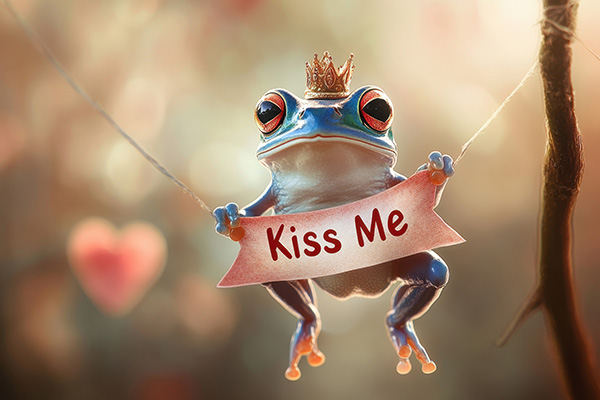emotional healing
Navigating Grief Without Losing Yourself
 In my work as a psychic reader, I have worked with many people navigating grief. Over the years, I have witnessed how people process loss and transition differently.
In my work as a psychic reader, I have worked with many people navigating grief. Over the years, I have witnessed how people process loss and transition differently.
I have often had to guide clients toward grounding, self-trust, and setting compassionate boundaries. And, as life would have it, I recently had to draw on that wisdom and apply it to my own family.
My father was recently admitted to hospice care at his local nursing home after spending a week in the hospital. His prognosis was poor.
As our family transitioned to this new phase of care, I stayed in touch with loved ones and made decisions centered on his comfort and dignity.
At the same time, I made a conscious effort to protect my emotional energy and maintain healthy boundaries so that I could stay grounded.
In these circumstances I’ve been grappling with a kind of grief that isn’t often acknowledged: the grief of realizing someone you love is no longer the person they once were.
Even when they are physically present, the relationship shifts. There can be a quiet heartbreak in adjusting to the present while remembering the past.
There is also grief in watching a family reorganize itself. During times of transition, long-standing dynamics often change. Some family connections deepen and some relationships no longer operate as they once did. This can also feel like a loss in terms of shared understanding and how things “used to be.” Sudden changes in family circumstances tend to reveal where everyone actually stands.
Embracing Growth Challenges In Your Relationship
 At some point in a romantic relationship, we all face challenges that test our connection with our partner or spouse. People disagree, make mistakes, and experience conflict. It’s human nature.
At some point in a romantic relationship, we all face challenges that test our connection with our partner or spouse. People disagree, make mistakes, and experience conflict. It’s human nature.
However, it is important to realize that most problems in a developing relationship are often not inherently negative or catastrophic. Instead, they present valuable opportunities for personal growth, healing, and self-discovery.
If you believe that your happiness in a relationship depends on finding the perfect partner, it’s time for a new perspective. The key to a happy relationship is to remove personal barriers one at a time. By doing so, you can fully immerse yourself in love and become a magnet for attracting the right partner into your life.
Consider the following five common issues that many new couples face and how you can learn from them to foster a stronger, more fulfilling connection with your significant other.
The Happiness Myth
Some people go into a new relationship expecting their partner to bring them the complete state of happiness, joy, and fulfillment they have always sought. But others cannot make us happy, joyful, or fulfilled because achieving this is always an inside job. It starts with us.
Grief Is A Sacred Gift Of Soul Experience
 Long ago, I yearned for a deeper life, a full life, a sane life. And the door opened. It led me within.
Long ago, I yearned for a deeper life, a full life, a sane life. And the door opened. It led me within.
Now, I long for a deep wound to be healed, and again I feel the door opening. I am prepared for the changes that come each time the door opens, and welcome them with profound gratitude.
I’ve come to understand that these “doors” don’t always show up looking bright and shiny and obviously spiritual. Sometimes they arrive disguised as heartbreak, loss, and the kind of grief that knocks the breath right out of your body. It doesn’t feel like a doorway then. It feels like a wall. A dead end. A great, echoing “Why?”
Last year had been a particularly difficult time for me. So much grief! Layers of it. Old grief that I thought I had already handled. New grief that came out of nowhere. Grief that didn’t even seem to have a clear name or story attached to it. I just had waves of sadness and loneliness that would rise up and spill over when I least expected it.
All part of the process, of course. But when you’re actually in it, that is not always comforting. I remember wondering, sometimes out loud:
When will I get back into the universal flow again?
When will the spiritual things I need for my Journey manifest?
When will this heaviness lift?
I wasn’t asking in a demanding way, more like a child pressing her face against the window, looking out at life, feeling like everyone else was moving forward while I was sitting in slow motion. My faith never left, but it got very, very quiet.
The Hidden Blessing Of Dysfunctional Parents
 For those of us who grew up with dysfunctional or abusive parents, the journey of healing is not a straight path. It twists and turns through shadows of anger, grief, and longing.
For those of us who grew up with dysfunctional or abusive parents, the journey of healing is not a straight path. It twists and turns through shadows of anger, grief, and longing.
But, within this curse always lies a paradoxical hidden blessing or two. Even the most wounded parents can be our teachers and a source of inspiration, not because of what they gave us, but because of what they could not.
Yes, dysfunctional and abusive parents can be an inspiration. Not in the sentimental sense of gratitude for their suffering, but in the clear-eyed recognition that their brokenness became the rich soil in which your awareness grew.
A damaged parent can inspire you to live more consciously, to love with intention, and to stop the cycle of ancestral pain that shaped them and you.
They can inspire you to use their example as a guide for what not to do, what not to say, and who not to become.
Their absence of nurturing can ignite within you the sacred resolve to be present and compassionate. Their harshness can awaken your gentleness. Their coldness can teach you warmth. The rejection you endured can remind you daily to make every person you love feel safe, seen, and cherished!
Even if your parents were never healed, you can be. Even if they never awakened, you can awaken. Their story does not have to become your destiny. You can use their limitations as fuel to create something better, purer, and truer.
The Emotional Imprints Of Past Lives
 I once did a psychic reading for a lady who had a real fear of the ocean. Her fear extended to being a passenger in an aircraft flying high above the ocean, to being on the beachfront trying to relax to the sound of waves crashing along the shore-line. She had booked a session with me to see if we could discover the source of her deep-seated fear of the sea.
I once did a psychic reading for a lady who had a real fear of the ocean. Her fear extended to being a passenger in an aircraft flying high above the ocean, to being on the beachfront trying to relax to the sound of waves crashing along the shore-line. She had booked a session with me to see if we could discover the source of her deep-seated fear of the sea.
The answer to people’s emotional blocks often comes to me through imagery and sounds, which I receive in my mind’s eye.
In this client’s case, the answer came ‘crystal clear.’ I saw a vision of a sailing ship from the 1800s being thrown around in a terrible storm, and I knew right away, that it was a past incarnation from whence her fear of water stemmed.
She had, in fact been a sailor on that ship, which sank. She died at sea after being swept overboard during tumultuous weather conditions.
The actual cause of many relationship challenges or emotional problems can lie in trauma which went unresolved in a previous life.
Emotional wounds leave emotional imprints, which filter into our current emotional condition. Locating the root problem from past lifetimes can go far in freeing us to move forward, free from those shackles that keep us stuck.
Have you ever felt uneasy when meeting someone new, without even knowing anything about them? It’s my belief that one can be holding a memory of a shared past life, in which the soul essence of the person, with whom we are ill at ease, was someone who harmed us in some way in another lifetime.
Tarot Forecast November 2025: Ten Of Swords
 The card that came in for this month is the Ten of Swords, a card that can look harsh at first, but carries a powerful message of closure, truth, and rebirth. This isn’t about endings for their own sake; it’s about release. Something has run its course, and it’s time to stop holding on.
The card that came in for this month is the Ten of Swords, a card that can look harsh at first, but carries a powerful message of closure, truth, and rebirth. This isn’t about endings for their own sake; it’s about release. Something has run its course, and it’s time to stop holding on.
The Ten of Swords invites us to be honest with ourselves, to stop pretending that what’s broken can still be fixed the old way.
This month’s theme is surrendering what’s no longer serving us. The Ten of Swords clears the clutter, both inner and outer. It shines a light on what’s been draining us, and while it can feel uncomfortable at first, it also brings freedom.
There’s a certain peace that comes with finally letting go. What’s ending now makes room for healing, insight, and new beginnings.
November’s energy is quiet but meaningful. It’s not dramatic or loud, it’s the deep exhale after a long effort. It asks us to slow down, listen, and trust that the cycle closing now is paving the way for something better.
The Ten of Swords doesn’t sugarcoat reality, but it always carries the promise of dawn. Its message is simple: you’ve come through the hardest part, and even if you can’t see it yet, light is returning.
By the end of this month, you may feel a sense of emotional relief or clarity that wasn’t there before. The Ten of Swords helps us clear old patterns, step away from what’s over, and prepare for the next chapter. It’s not the end, it’s the turning point between endings and renewal.
Staying Spiritually Nourished In A Digital World
 If you’re feeling stuck in cycles of anger, sadness, anxiety, or fatigue, take a moment to ask yourself: what am I consuming?
If you’re feeling stuck in cycles of anger, sadness, anxiety, or fatigue, take a moment to ask yourself: what am I consuming?
This question goes far beyond food. Are you consuming negativity online? Are you surrounding yourself with people who drain rather than uplift? Are you spending more time in front of a screen than under the sky?
Everything you consume and engage with in this world either feeds your inner light or diminishes it. Everything you watch, listen to, interact with, and invite into your life.
This truth is simple yet profound. We may not always realize it, but the choices we make each day either nourish our spirit or cloud it.
In today’s world, it’s easy to become entangled in habits, distractions, and energies that gradually drain our vitality. The barrage of social media updates, the constant hum of technology, processed foods, fear-driven news cycles, anger, jealousy, dishonesty, and gossip. All of these things can chip away at the divine light within us, if we let it.
On the other hand, there are sacred and intentional choices that can uplift and energize us. Fresh fruits and vegetables grown with love from the Earth. Gentle sunlight warming your skin. Time in nature, listening to the rhythm of the trees and the whispers of the wind.
Loving and conscious relationships. Forgiveness. Kindness. Generosity. Dance, art, singing, and the tender beauty of genuine joy. These are not luxuries. They are lifelines to your highest self. They feed your light. Continue reading